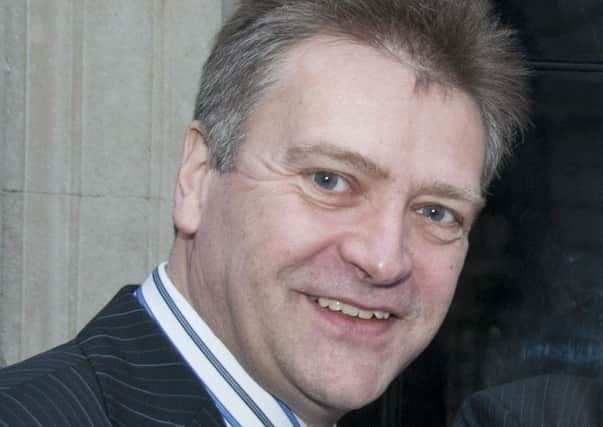Colin Valentine: I'll raise a glass to anyone who can explain why pubs have to pay more tax


I was subsequently taken to task in the pages of the Scotsman by a senior employee of one of the pubcos, who disagreed with almost everything I said. We have met socially and professionally on numerous occasions – before and since both articles – and have agreed to disagree on that particular topic.
One thing we do agree on, however, is the ticking time bomb about to devastate the pubs industry. When CAMRA was formed in 1971, the United Kingdom had 75,000 pubs. It is now less than 50,000, with more beer drunk at home than in the pub. While there are a number of contributing factors to that decline, the business rates set to be introduced will have a major impact in driving that figure even lower.
Advertisement
Hide AdAdvertisement
Hide AdThis revaluation that came into effect earlier this year means that Scottish publicans pay a much higher level of business rates than commercial neighbours. The Scottish Licensed Trade Association (SLTA), which represents individual publicans, has put together evidence to support this by evaluating 12 adjacent business premises in Haymarket, Edinburgh, only one of which is a pub. The results are shocking. Non-licensed premises are seeing their rateable values increase by 11.4 per cent to 12.2 per cent. In contrast, restaurants and pubs in the same area are seeing increases of 29.5 per cent to an eye-watering 111.5 per cent.
The pub in the survey will see its rateable value increase from £24,100 to £51,000. Using the figures in the exercise, one of the non-licensed premises was valued in 2010 at virtually the same as the pub. The rateable value for the non-licensed premises has only increased by 12.1 per cent. If the same method was used for calculating the rateable values for each of these premises in 2010, and almost identical rateable values were set, why is there such a difference in 2017? In their submission last year to the Barclay Review on Scottish Business Rates, the SLTA stated: “Our primary grievance with the current system is that commercial rates for pubs and bars are calculated on a completely different basis from any other commercial businesses – they are calculated on turnover rather than square footage.
“The rates burden on such premises equates to around 8.5 per cent – 9 per cent of turnover. In comparison, the rates burden on premises such as supermarkets, the on trade’s main competitors, equates to about 2 per cent of turnover. The current scheme leads to unacceptably high valuations, an unfair burden of rates being imposed upon small businesses; and doubly penalises those businesses by almost automatically excluding them from the small business relief scheme in stark comparison to most other small businesses with a similar or even higher profitability. After all, we are part of the retail sector and our premises are generally located alongside our retail partners.”
Such tax increases will have a devastating impact on pubs that are being asked to pay tens of thousands of pounds more tax in the coming years – increases that cannot be made up by simply pulling a few more pints.
The two year 12.5 per cent cap on business rates rises for the hospitality trade has made a big difference and in some cases it has been, and will be, a life saver.
However, the Scottish Government needs to be persuaded that such support should not be a one-off. It must be retained until something more permanent is in place to resolve the unfair system that penalises pubs disproportionately. The increase in business rates is nothing less than a state sponsored rent increase.
I have been asked why I think that publicans deserve favours. Publicans don’t deserve any favours – which is just as well, as they certainly don’t get any from our elected representatives in local government, the Scottish Parliament or Westminster. However, they do deserve fairness and that is something that they don’t get, either in Scotland or the rest of the UK.
It is about time they did. The pub trade accounts for something like 0.5 per cent of United Kingdom turnover, but it pays in the region of 2.8 per cent of all business rates. I’ve tried to get an elected politician at any level to explain why this is, but I’m still waiting on an answer. Perhaps, if a politician who thinks the current situation is fair is reading this, they could write to the Scotsman and defend the indefensible.
Colin Valentine is national chairman of Campaign for Real Ale.